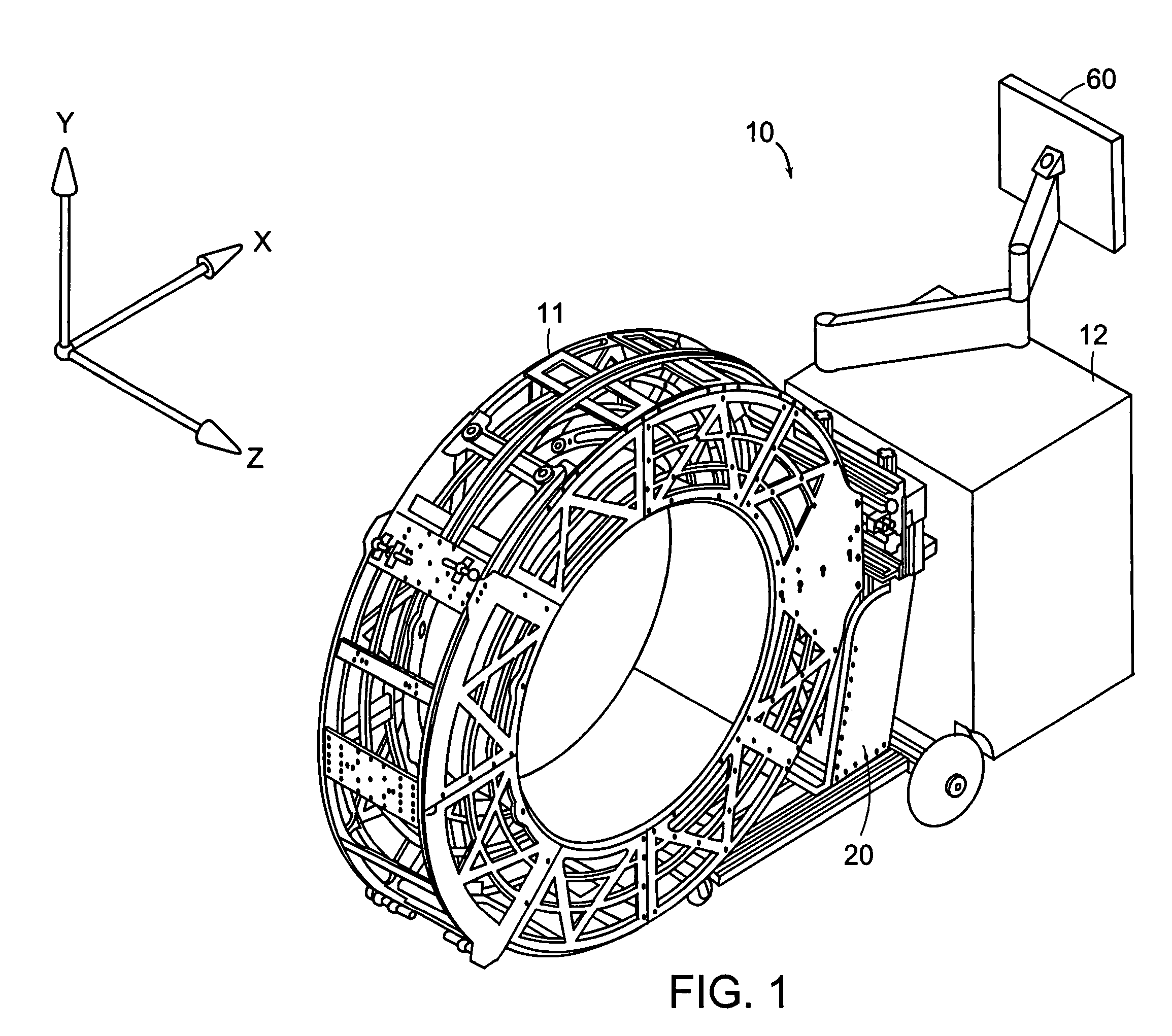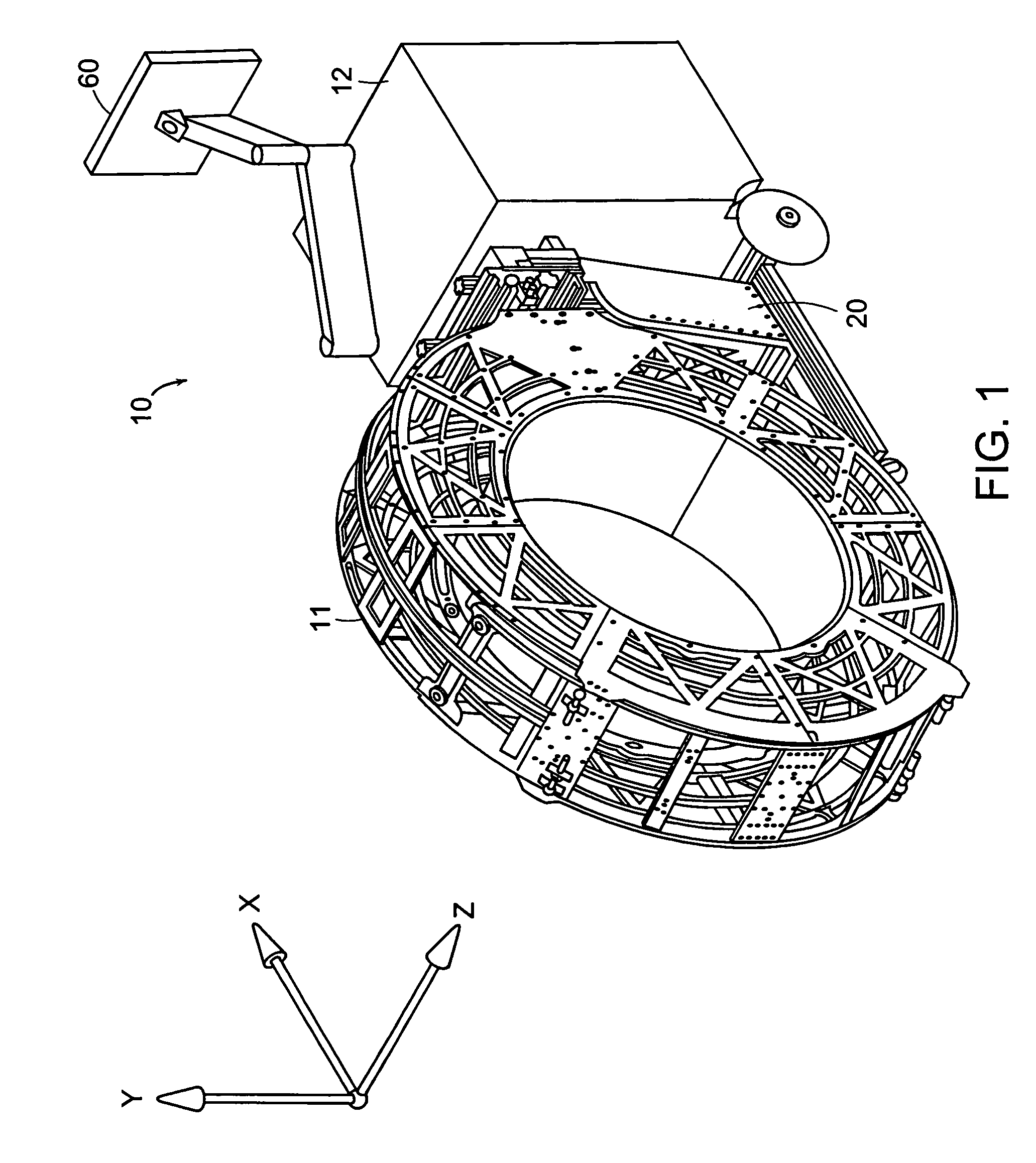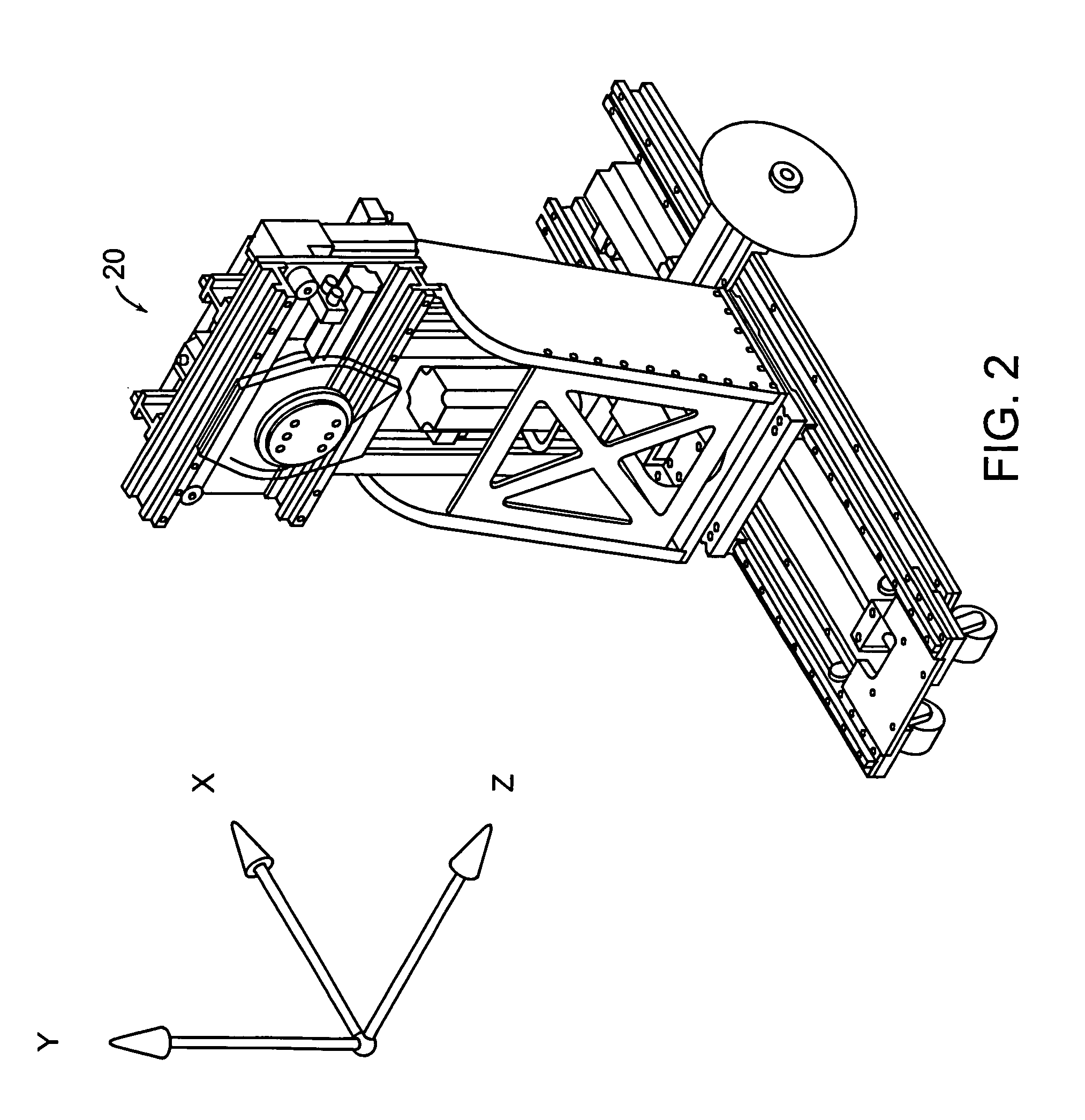Gantry positioning apparatus for x-ray imaging
a positioning apparatus and x-ray technology, applied in the field of x-ray imaging, can solve the problems of procedurally cumbersome, limited field of view, and previous attempts to simply not address the true need, and achieve the effect of increasing the field of view of the detector
- Summary
- Abstract
- Description
- Claims
- Application Information
AI Technical Summary
Benefits of technology
Problems solved by technology
Method used
Image
Examples
Embodiment Construction
[0045]A description of preferred embodiments of the invention follows.
[0046]FIG. 1 is a schematic diagram showing an x-ray scanning system 10 in accordance with one embodiment of the invention. The x-ray scanning system 10 includes a gantry 11 secured to a support structure, which could be a mobile or stationary cart, a patient table, a wall, a floor, or a ceiling. As shown in FIG. 1, the gantry 11 is secured to a mobile cart 12 in a cantilevered fashion via a gantry positioning apparatus 20. As described in further detail below, the gantry positioning apparatus 20 can translate and / or tilt the gantry 11 with respect to the support structure to position the gantry 11 in any number of imaging positions and orientations.
[0047]The mobile cart 12 of FIG. 1 can optionally include a power supply, an x-ray power generator, and a computer system for controlling operation of the x-ray scanning device and for performing image processing, storage of x-ray images, or other data processing funct...
PUM
 Login to View More
Login to View More Abstract
Description
Claims
Application Information
 Login to View More
Login to View More - R&D
- Intellectual Property
- Life Sciences
- Materials
- Tech Scout
- Unparalleled Data Quality
- Higher Quality Content
- 60% Fewer Hallucinations
Browse by: Latest US Patents, China's latest patents, Technical Efficacy Thesaurus, Application Domain, Technology Topic, Popular Technical Reports.
© 2025 PatSnap. All rights reserved.Legal|Privacy policy|Modern Slavery Act Transparency Statement|Sitemap|About US| Contact US: help@patsnap.com



